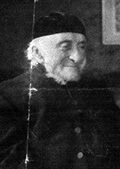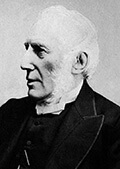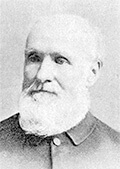the First Sunday of Lent
Click here to learn more!
Bible Commentaries
Commentary Critical and Explanatory on the Whole Bible Commentary Critical
Old Testament
The creation, humanity's fall, the flood, and God's covenant with Abraham and his descendants. Exodus
Israel's escape from Egypt, receiving the Law, and covenant formation at Mount Sinai. Leviticus
Laws on sacrifices, purity, and holiness, guiding Israel's worship and community life. Numbers
Israel's wilderness journey, census data, and preparations for entering the Promised Land. Deuteronomy
Moses' final speeches reiterating the Law and renewing Israel's covenant before entering Canaan. Joshua
Israel's conquest, division of Canaan, and Joshua's leadership in settling the Promised Land. Judges
Israel's cycle of sin, oppression, and deliverance by judges, highlighting moral decline. Ruth
A story of loyalty and redemption, leading to Ruth becoming an ancestor of King David. 1 Samuel
Samuel's leadership, Saul's reign, and David's rise as Israel's future king. 2 Samuel
Focuses on King David's reign, his successes, personal failings, and the establishment of a united Israel. 1 Kings
Solomon's reign, the temple's construction, and the kingdom's division after his death. 2 Kings
Chronicles the history of Israel and Judah, detailing the reigns of their kings and the fall of Jerusalem. 1 Chronicles
A retelling of Israel's history, focusing on David's reign and temple preparations. 2 Chronicles
The history of Judah's kings, emphasizing temple worship, leading to Babylonian exile. Ezra
The return from exile, rebuilding the temple, and reestablishing the Law in Jerusalem. Nehemiah
Nehemiah's efforts to rebuild Jerusalem's walls and restore the community's faithfulness. Esther
A Jewish queen's courage saves her people from a plot of genocide in Persia. Job
A righteous man's suffering, his dialogues on justice, and God's ultimate sovereignty. Psalms
A collection of songs and prayers expressing worship, lament, thanksgiving, and praise to God. Proverbs
Wisdom sayings offering guidance on moral living, relationships, and the fear of God. Ecclesiastes
Reflects on the meaning of life, exploring the futility of human endeavors and the pursuit of wisdom. Song of Solomon
A poetic celebration of love, expressing deep romantic and spiritual devotion between lovers. Isaiah
Prophecies of judgment and redemption, foretelling the Messiah's coming and Israel's restoration. Jeremiah
Warnings of Jerusalem's destruction, calls for repentance, and promises of a new covenant. Lamentations
Poems mourning Jerusalem's destruction and expressing deep sorrow, yet hope in God's mercy. Ezekiel
Visions and prophecies of Jerusalem's fall, Israel's restoration, and a future temple. Daniel
Stories of faithfulness in exile and visions of future kingdoms and God's ultimate victory. Hosea
A prophet's marriage symbolizes God's steadfast love for unfaithful Israel, calling for repentance. Joel
Prophecies of a locust plague, judgment, and the outpouring of God's Spirit. Amos
A call for social justice, condemning Israel's complacency and predicting divine judgment. Obadiah
Prophecy against Edom for its betrayal of Israel, foretelling its destruction. Jonah
A reluctant prophet's mission to Nineveh, highlighting God's mercy towards repentance. Micah
Warnings of judgment, calls for justice, and prophecies of a future ruler from Bethlehem. Nahum
The impending fall of Nineveh as God's judgment against Assyrian cruelty. Habakkuk
A prophet questions God's justice, leading to a vision of divine sovereignty and faith. Zephaniah
Prophecies of judgment on Judah and surrounding nations, with promises of restoration. Haggai
Encouragement to rebuild the temple after the Babylonian exile, emphasizing God's presence. Zechariah
Visions and prophecies encouraging the returned exiles, foretelling the Messiah's coming. Malachi
A call to covenant faithfulness, addressing Israel's spiritual apathy, and predicting Elijah's return.
New Testament
Jesus' life, teachings, and fulfillment of Old Testament prophecies as the Messiah. Mark
A fast-paced account of Jesus' ministry, focusing on his actions and sacrificial death. Luke
Jesus' life, emphasizing compassion for the marginalized and the universal scope of salvation. John
Theological reflections on Jesus as the Word of God, focusing on his divine nature and mission. Acts
The early church's growth, the apostles' ministry, and the spread of the Gospel. Romans
A theological treatise on salvation, grace, faith, and righteousness through Jesus Christ for all. 1 Corinthians
Paul addresses divisions, immorality, and spiritual gifts in the Corinthian church. 2 Corinthians
Paul's defense of his apostleship, his sufferings, and the power of God's grace. Galatians
Paul's defense of the Gospel of grace against legalism, emphasizing faith in Christ alone. Ephesians
Paul's teachings on the church's unity, spiritual blessings in Christ, and Christian conduct. Philippians
A letter of joy and encouragement, urging humility and faithfulness amid persecution. Colossians
Paul's emphasis on Christ's supremacy and warnings against false teachings. 1 Thessalonians
Encouragement to a young church, with teachings on holiness and Christ's return. 2 Thessalonians
Clarifications about Christ's return and exhortations to stand firm in faith. 1 Timothy
Guidance for church leadership, sound teaching, moral conduct, and defending the truth of the gospel. 2 Timothy
Paul's final exhortations to Timothy, emphasizing perseverance and faithfulness. Titus
Instructions for establishing order in the church, promoting sound doctrine, and living with integrity. Philemon
A personal appeal for the forgiveness and restoration of a runaway slave, Onesimus. Hebrews
An insightful look at Christ's supremacy, priesthood, and the fulfillment of prophecies. James
Practical wisdom on living out one's faith through good works and righteous behavior. 1 Peter
Encouragement for suffering Christians to remain faithful and hopeful in their trials. 2 Peter
A reminder to grow in faith, resist false teachings, and remain steadfast awaiting His return. 1 John
Teachings on love, obedience, and assurance of salvation through fellowship with God. 2 John
A letter encouraging love, obedience to God's commands, caution against teachings that deny Christ's truth. 3 John
A personal letter commending hospitality and warning against arrogance in church leadership. Jude
A strong warning against false teachers and a passionate call to defend the faith and uphold the truth. Revelation
Apocalyptic visions of God's ultimate victory, Christ's return, and the new heaven and earth.
Author's Biography
At a time when the theological winds seem to change direction on a daily basis, the Commentary Critical and Explanatory on the Whole Bible is a welcome breath of fresh air from conservative and orthodox teachers of the Christian faith. This commentary has been a bestseller since its original publication in 1871 due to its scholarly rigor and devotional value. Robert Jamieson (1802-1880), Andrew Robert Fausset, and David Brown(1803-1897) have crafted a detailed, yet not overly technical, commentary of the Bible that holds to the historic teachings of orthodox Christianity. Commentary Critical and Explanatory on the Whole Bible is based on a detailed exegesis of the scriptures in the original languages and is a "must have" for those who are interested in a deeper appreciation of the Biblical text.
The designation of this electronic edition of the commentary as expanded refers to the editor's preference for complete words rather than abbreviations in the commentary (with the exception of Scripture references); the addition of white space in layout by placing on new lines the portion of the Scripture on which commentary has been provided by the authors; the replacement of the standard abbreviations "ch." and "vs." in citations with a complete reference to the Bible book, chapter, and verse; the rendering of the abbreviation of standard reference works by Greek and Latin Fathers in full English titles. The purpose of these expansions is to make the Commentary more readable and accessible to the modern reader.
It is worth noting that in the printed version, errors in spelling, punctuation, numbering, cross references have followed throughout the printing history of this one-volume edition of the Commentary. This electronic edition, then, may represent the first corrected edition.
Robert Jamieson D.D. (1802-1880). Jamieson was the son of a baker in Edinburgh, born there on Jan 3, 1802. He was educated at the high school and entered Edinburgh University with the intention of of studying for the medical profession. However, before completing his studies Jamieson decided to devote himself to the ministry, gaining license as a preacher in 1827. In 1848, the University of Glasgow conferred upon him the degree of Doctor of Divinity.
For many years Jamieson took a prominent part in ecclesiastical business and in 1872 he was unanimously chosen moderator of the General Assembly. He continued to occupy his place as minister of St. Paul's until his death on October 26, 1880. Jamieson specially charged himself with the oversight of young men studying for the ministry, and his students' class exercised an important influence throughout the church.

Andrew Fausset
Andrew Fausset, A.M. (1821-1910). Fausset was the son of the Rev. William Fausset by his wife Elizabeth, daughter of Andrew Fausset, provost of Sligo; the family was of French origin. Educated first at Dungannon Royal School, he obtained a scholarship at Trinity College, Dublin in 1838. Gaining prizes and awards there, he graduated B.A. in 1843 (senior moderator in classics), and won the vice-chancellor's Latin verse prize both that year and in 1844. He obtained the divinity testimonium (second class) in 1845, and graduated M.A. in 1846, proceeding B.D. and D.D. in 1886.
On graduating, Fausset became an academic coach at Trinity. He was ordained deacon in 1847 and priest in 1848 by Edward Maltby, the Bishop of Durham, and served from 1847 to 1859 as curate of Bishop Middleham, a Durham colliery village. From 1859 until his death he was rector of the parish of St Cuthbert's Church, York.

David Brown
David Brown (1803-1897). Brown was born at Aberdeen Aug. 17, 1803 and died there July 3, 1897. He studied at the University of Aberdeen (M.A., 1821); was licensed 1826, and was assistant to Edward Irving in London 1830-32; was ordained minister of a country chapel six miles southwest of Banff 1836; he went with the Free Church 1843, and the same year became minister of St. James, Glasgow; was elected professor of apologetics, church history, and exegesis of the Gospels at the Free Church College, Aberdeen, 1857; elected principal 1876, and resigned his professorship 1887.
He was a director of the National Bible Society of Scotland, one of the founders of the Evangelical Alliance, was deeply interested in the Alliance of the Reformed Churches and a member of the third General Council at Belfast, 1888. He was an opponent of Robertson Smith in the controversy which resulted in the dismissal of the latter from Aberdeen, and as a member of the New Testament revision company took a highly conservative position. He was moderator of the General Assembly of the Free Church in 1885.
